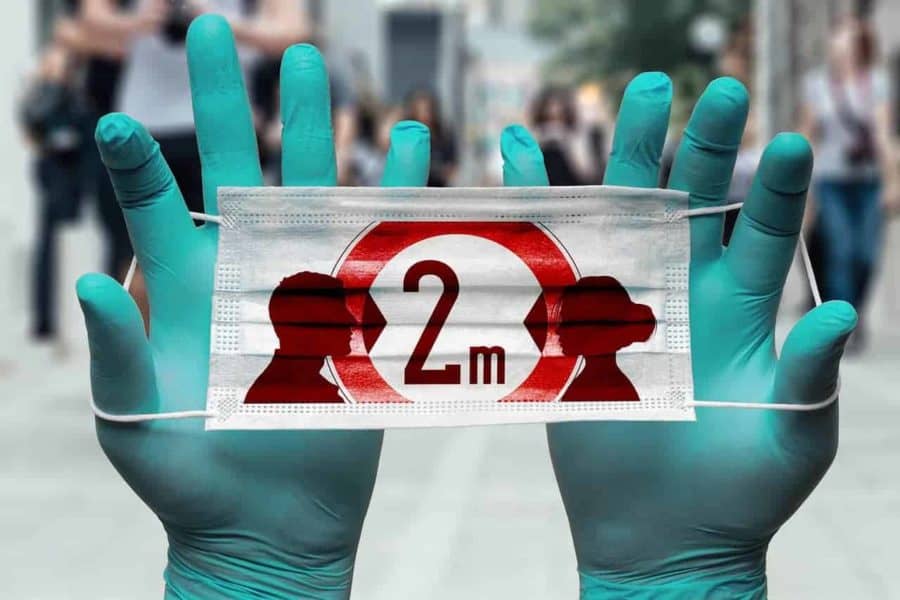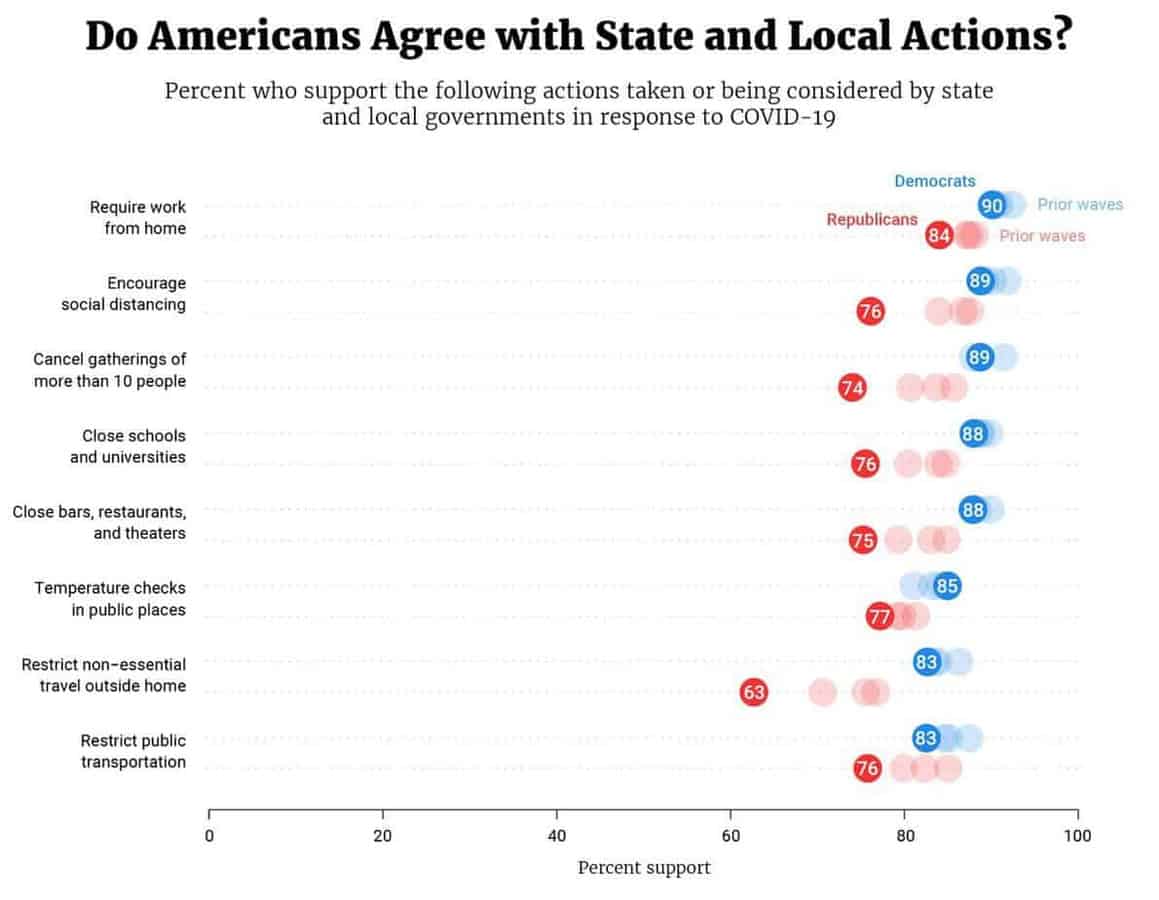Over the weekend of May 9–10, many states, including California, began to ease safer-at-home restrictions, allowing some businesses to reopen under strict conditions, and opening some public spaces, including hiking trails and beaches.
Now, a weekly survey co-led by UCLA political science professors Lynn Vavreck and Chris Tausanovitch has found that Democratic and Republican voters favor the restrictions that were enacted to slow the spread of COVID-19. And by and large, people prefer a cautious approach to getting life back to normal.
The UCLA + Democracy Fund Nationscape survey began adding COVID-19–related questions in March, shortly after businesses, schools and events began shutting down. Topics include Americans’ beliefs, worries and behaviors related to the pandemic. The survey will post results each week on a new coronavirus-specific page of its website.
“Our research has revealed a nation largely in agreement on everything from preventive measures to thoughts about returning to normal activities,” Vavreck said. “Far from the partisan division that has described the last several years, nearly everyone has incorporated precautions against the virus into their daily lives and most people support government interventions to stop its spread.”
The study was quickly noticed by government leaders. Sen. Ben Cardin of Maryland referenced the findings during remarks on the Senate floor on May 13.
Among the initial results:
- A majority of Americans support preventive measures like school closures (80%), canceling large gatherings (80%) and closing businesses like bars and restaurants (80%).
- Republicans’ support for those measures dipped slightly in April.
- 83% of Democrats support restricting nonessential travel, versus 63% of Republicans.
- When asked what activities they would resume when elected officials recommended lifting restrictions (assuming they engaged in such activities prior to the pandemic), a majority of respondents said they are likely to dine at a friend’s home (61%). They said they would be less likely to participate in activities that might have a broader economic impact — going to a shopping mall (37%), riding public transportation (28%) or attending a live sporting event (24%).
- Just 38% of respondents said they are ready to have a child return to school.
Nationscape poses questions to a sample of 6,250 Americans to gauge where they stand on policy, politics and issues. By Election Day 2020, the project will have completed more than 500,000 interviews with Americans from every congressional district.
Democracy Fund + UCLA Nationscape Survey
A majority of voters surveyed agree with measures local and state governments have implemented to slow the spread of COVID-19. (Faded dots represent results from previous weeks. Data collected March 19 through April 29, 2020.)
Researchers also surveyed respondents about the economic pain caused by COVID-19. Of respondents who earn less than $25,000 per year, 26% reported that their income has been reduced significantly due to the crisis, and 24% have lost their primary source of income entirely. Among those earning more than $85,000 annually, 23% reported significant income loss but just 8% indicated that they had lost their income entirely.
Vavreck is an expert on presidential elections; her previous research has shown that a good economy is often critical to a president’s reelection chances.
“As we head into the presidential election, we will continue to chart how the government’s response to the pandemic will affect the way voters view an incumbent president presiding over an unexpected downturn in the American economy,” Vavreck said.
If our reporting has informed or inspired you, please consider making a donation. Every contribution, no matter the size, empowers us to continue delivering accurate, engaging, and trustworthy science and medical news. Independent journalism requires time, effort, and resources—your support ensures we can keep uncovering the stories that matter most to you.
Join us in making knowledge accessible and impactful. Thank you for standing with us!



Greed and corruption affects both parties. Here in Iowa change through the ballot is impossible as both parties want illegal migrants, no worker rights, open defiance of our laws, and worse. Polls of voters may show one thing, reality as dictated by party elite is entirely different.
Reopening will be sabotaged by companies doing “business as usual”. For example American seed companies. They normally bring in thousands of migrant workers for summer and fall work. Unfortunately they come from areas where covid-19 is raging out of control. Combined with crowded housing, transportation, and work the virus will be widespread among migrants. Due to seed companies operating in many small agricultural communities there is no isolation. Ensuring covid-19 will spread from migrants to community.